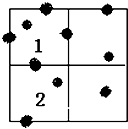German Chancellor Angela Merkel won over German voters in the Federal Election on Sept. 27. Can she now be won over by a French charm offensive (1) at repairing the relationship that was once at the heart of Europe That’s the question being asked in Paris, (2) top government officials are (3) talking about their desire to rekindle closer ties (4) their neighbors across the Rhine. (5) the end of World War II the Franco-German relationship has been the motor of European integration, the (6) force behind the creation of the European Union and, more recently, the introduction of the euro. But the ardor has (7) in this decade, particularly under Merkel, who has regularly struggled to (8) her irritation with French President Nicolas Sarkozy’s grandstanding. Sarkozy, (9) , has often been impatient with what he (10) Merkel’s lack of resolve.
The sometimes (11) personal rapport is a long way from the public shows of affection their predecessors staged, particularly Helmut Kohl and FranCois Mitterrand, who movingly held (12) in 1984 in a Verdun cemetery. There’s been tension on (13) , too. Charles Grant, director of the London-based think tank Centre for European Reform, points out that France and Germany have been (14) on issues from how best to reflate their economies during the economic (15) to the smartest strategies for dealing with Russia.
But influential movers in France are now (16) to put the relationship back on a friendlier footing. In a recent paper French think tank Institute Montaigne (17) an ambitious agenda for the two nations, (18) that a new impetus is needed if Europe’s voice is to be heard in a world (19) of big new players, such as Brazil and India, and at a time when President Obama seems fax more (20) with China and the rest of Asia than with America’s traditional allies in Europe.
2()
A.which
B.that
C.where
D.when
参考答案:C
解析:
[解题思路] 分析句子结构可知,空格前后为两个完整的分句,由此推测此处应该填人连词。前一分句意为“这是法国正在问的问题”,后一分句意为“高级政府官员______讨论与莱茵河对岸的邻国重建更紧密联系的愿望”。此处连词应该指代前面的Paris,表示地点,所以应用where引导非限制性定语从句。[A] which也能引导非限制性定语从句,但它一般指代前面句中提到的某个事物或某件事情;[B] that一般不引导非限制性定语从句;[D] when引导的非限制性定语从句一般指代前面提到的时间,三个选项均不符合题意,故排除。

